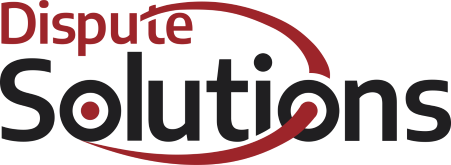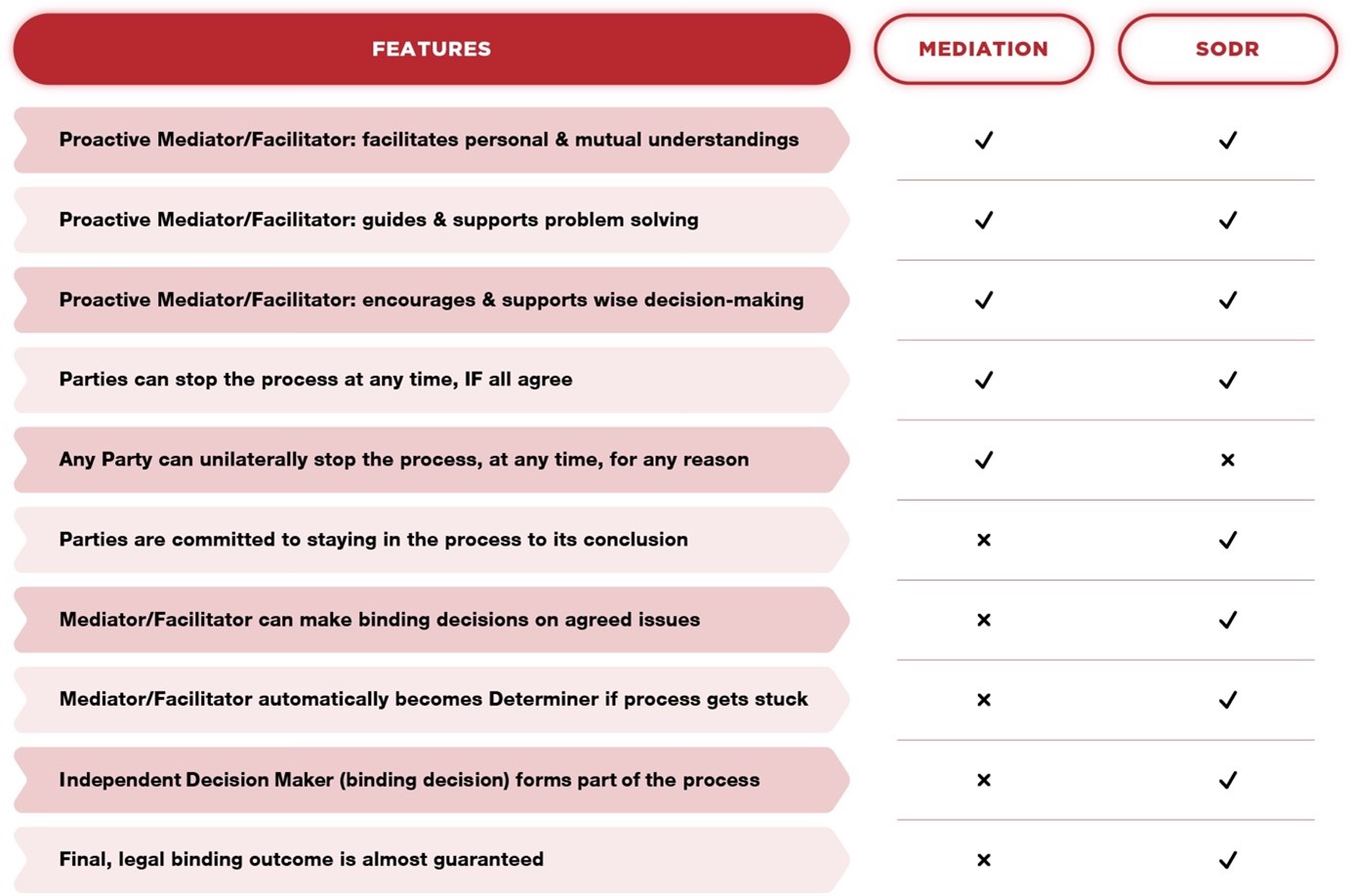SODR is an end-to-end dispute resolution system that produces quick, fair, practical, cost-effective, legally enforceable outcomes. It’s exceptionally appropriate for most types of dispute – from family conflict to large and complex commercial matters.
SODR combines the most effective features of: (skilled) Facilitation and Mediation with (legally binding) Adjudication / Determination, in a 3-phase process, comprising:
(1) Facilitation > (2) Binding Determination > (3) Independent Decision

| Phase #1 | Facilitation. Facilitator guides a proactive, tailored, interactive process to help the Parties develop and negotiate a great solution for their issues, problems, or disputes. Objective: a willing agreement (contract) to resolve the dispute, in writing. Comment: This phase operates like a form of Mediation on steroids. |
| Phase #2 | Enforceable Determination. If the parties can’t, or won’t negotiate to an agreement, the Facilitator makes an enforceable Determination, in writing, based on everything they’ve learnt through the Phase #1 process. If they need more extra information or evidence to make a responsible determination, they can demand it from the parties. Objective: a legally binding determination to resolve the dispute, in writing, based on contractual authority provided in the engagement documents. |
| Phase #3 | Independent Decision. if all Parties reject the Facilitator’s Determination, in writing, it becomes null and void and, unless all parties agree to change or terminate the process, the dispute is referred to a neutral, Independent Decision Maker (“IDM”) for a legally binding Decision. Objective: the IDM’s written Decision is legally binding on the parties, as a formal Determination, based on contractual authority provided in the engagement documents. |
| Pros: | Confidential, practical, quick, flexible, responsive, final, and very time/cost-efficient. Parties cannot bail out unless all agree. An outcome is assured. All parties are legally bound by: (a) Facilitator’s Determination, or (b) IDM’s Decision to avoid any party being able to exit or otherwise wreck the process to prevent it achieving a legally binding conclusion. |
| Cons: | Drive for a quick and final outcome may not be compatible with the need for a slower-paced, more sensitive and empathic process to preserve relationships. All parties are legally bound by: (a) Facilitator’s Determination, or (b) IDM’s Decision and are required to delegate ultimate decision-making authority to them as the price of admission to the process. |

